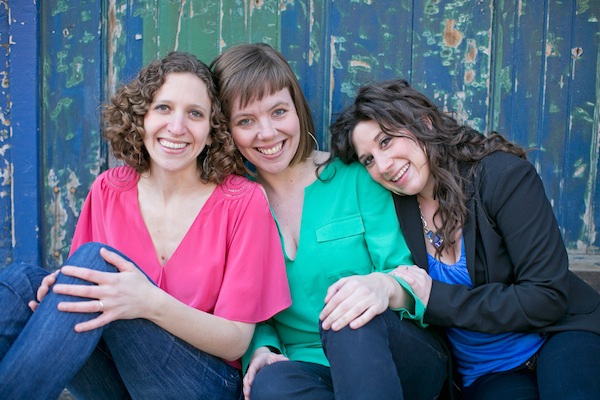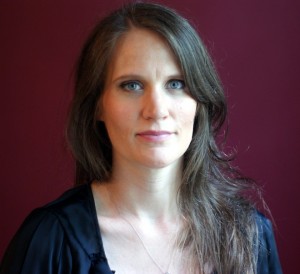American Music Project launches with epic Wurtz quintet and vigorous performances

On Sunday, the American Music Project advanced from ambitious dream to concert hall reality in a promising, if at times aurally overwhelming, two-hour debut. Vigorous performances from the string trio Chicago Q Ensemble, the unveiling of a colossal new AMP commission by composer Amy Wurtz, and the unearthing of two largely unheard chamber works meant that those of us at Ganz Hall fared substantially better than couch-bound Chicago football fans this weekend.
The brainchild of Chicago Classical Review founder Lawrence A. Johnson, the American Music Project is a nonprofit foundation aimed at promoting and supporting the work of underperformed U.S. composers, and Irving Fine and David Diamond certainly fall under this category. That undergraduate and graduate degrees in music performance, decades of work as a professional instrumentalist and five years as a music writer were not enough to bring these composers on my radar until this concert is perhaps a clue as to just how many American composers have dipped into relative obscurity.
Chicago Q violist Aimee Biasiello got things off to a fine start with a sumptuous delivery of the tone row that opens Fine’s Fantasia for String Trio. This first movement Adagio ma non troppo draws sweeping melodic arcs between the voices, and the trio here displayed some of the finest playing of the afternoon, caressing every corner of the room with a lustrous, expertly-balanced tone. While the Allegro molto ritmico second movement plays more like an exercise in rhythmic counterpoint, circling back incessantly on itself until finally breaking into a stirring unison passage, the final movement, Lento assai, tranquilo, moves more effectively through a languid, Parisian-hued realm, with the final bars of the piece a dead-ringer for Ravel.
David Diamond’s String Quartet No. 2 brought to the stage guest violinist Sharon Chang, who dovetailed well with the trio for the composer’s constantly shifting pairings and blocky choruses that launch the piece. With an oeuvre including eleven symphonies and ten string quartets, Diamond’s music clings to a romantic aesthetic, and with this quartet, a near-manic bombardment of motivic and episodic material.
Take the second movement Adagio mesto, which ramps up the orchestration to fascinating, but also claustrophobic, levels. This density finally gives way to the upper and lower voices diverging to the far end of their respective instruments, offering the listener a moment of sonic reprieve. The experience is similarly dichotomous: the melodies are a familiar flavor of melodrama, but the layers are so closely stacked that one listen is not enough to unpack this substantial movement. The importance of the American Music Project’s goal of giving pieces such as this more stage time is coming into sharp focus by this point on the program.
The cornerstone of AMP’s inaugural concert, the world premiere of Amy Wurtz’s Piano Quintet, is a leviathan of a piece with no shortage of erudite writing. Unfortunately, the Ganz Hall audience was unable to hear much of the score’s nuance, as the composer’s sheer volume at the piano all but entombed the strings throughout. The quartet visibly struggled to be heard, and details such as the propellant rhythmic figures in the first movement Allegro were lost to piano sustain.
Nonetheless, Wurtz’s craft remained evident across the expansive, five-movement work, as with the breathtaking Grave, in which cello snap-pizzicati evaporate into translucent violin harmonics while massive piano octaves drop like pre-historic monoliths.
The Scherzo that follows whirls into existence with fleet scales passed between voices before a series of duets ushers in an Americana-themed passage, satisfyingly constructed of open intervals and exuberant playing on the part of the quintet. A wistful Fugue is here indicative of Wurtz’s economy of writing as well as her skill in developing out this material, and the final Andante movement, has the composer’s abilities in writing idiomatically and virtuosically for strings on full display. Balance issues aside, the premiere offered many arousing moments, such as the swashbuckling theme near the conclusion of the piece, played with compelling verve by violist Biasiello, as well as a gripping second movement cello solo from Sara Sitzer.
As so many larger institutions across the country continue to lean toward safe and greatest-hits-style programming in a misguided attempt to fill seats, concerts that challenge listeners to consider pieces outside of familiar territory are increasingly necessary, and I for one am eager to hear what the American Music Project serves up next.
Posted in Performances





